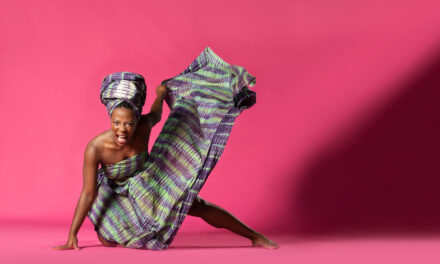Female Genital Mutilation/Cutting (FGM/C) is often described as a rite of passage ceremony, consisting of the total or partial ablation of the vulva, the external part of the female genitalia. Although practiced in many countries all over the world, this piece will focus on insights provided by women I interacted with during my five weeks Honours Degree research fieldwork in Northern and Central Burkina Faso. It is important to stress that these experiences do not represent every Burkinabe woman’s FGM/C experience, but they do inspire fundamental questions about Global discourses on Gender-Based Violence (GBV), more specifically, the homogenization of African women’s FGM/C experiences, the international community’s double standards that practices such as labiaplasty reveal, and the linguistic differences between local and foreign FGM/C terminologies.

In the course of this fieldwork, I interviewed eight incredible women who considerably changed my perception of the practice. Despite the fact that FGM/C is still considered a sensitive topic in Burkina, the women I spoke to were quite open to engaging about their experiences, which I am grateful for. Five of these participants were categorically against FGM/C as a result of either their personal or loved ones’ traumatic experiences. Nonetheless, three participants argued that FGM/C is bad, “only when it is not done well”. Upon hearing this perspective from my first interviewee, I recall wondering whether she was lying to me. How could she not detest the practice? She was supposed to hate it! The literature and the media said so! And what did “done well” mean anyway? The World Health Organization classifies the practice into five different types. Based on the woman’s description, I realized that “done well” most likely referred to FGM/C Type 1 or 2, which entails the ablation of the clitoral hood or parts of the labia minora. In case you are unsure of the vulva’s anatomy, check out this labia library. Hearing similar narratives from two more participants made me question even more the reason why this narrative was so unpopular. It is true that in many instances, women suffer from reproductive health issues if they survive the often traumatic experience at all. There are equally strong reasons to believe that FGM/C is primarily practised to control women’s sexuality, as Western liberal feminist thought posits. However, the fact that the international community generalizes African women’s FGM/C experiences feeds into existing negative stereotypes about Africa and its people.

Meanwhile, three of my respondents believed that FGM/C is not all barbarism and trauma. In fact, several scholars have shared interesting studies on this, including Dr. Wairimu Njambi, Kenyan professor of women’s studies and sociology, who recounts that during her operation, her clitoris’ hood was “cut through its apex, which caused the hood to split open and the clitoris to be completely exposed, an exposure that has been associated with sexual pleasure”. Ignoring narratives such as that of Dr. Wairimu leads to normalizing these cases from a single narrative, thereby alienating many other African women’s voices. In her work, mostly centred on postcolonial and sexuality studies, Dr. Wairimu discusses whether women’s bodies can and should be separated from their cultural contexts. Unfortunately, there seems to be very little space for women like Dr. Wairimu, or my three research participants in the international FGM/C narrative, currently fueling multiple development programs in Africa. Even more alienating is the double standard that many international human rights organizations hold against vulva modification practices in Africa versus Europe, Australia, or the USA. On one hand, procedures such as labiaplasty (plastic surgery often undertaken to reduce the size of the labia minora and the labia majora) are totally legal, and on the other, medicalized FGM/C in countries like Algeria are strictly condemned by the UN. While labiaplasty is equally practised on women with congenital conditions such as intersex, several women in Western countries undergo a labia reduction surgery because they believe their labia is asymmetrical and therefore, abnormal or pathological. Even if one argues that women who undergo labiaplasty have the choice to do so, many critics claim women’s decision to undergo a labia modification surgery is influenced by pressure from the media or romantic partners to have symmetrical and “perfect” vulvas. Again, if you are not well acquainted with vulvas, I highly suggest you check out the labia library that shows all vulva shapes are perfectly normal and beautiful! Despite the fact that labiaplasty and FGM/C are siblings from another mother, there is still something fundamentally alarming about surgically altering one’s vulva, be it for aesthetic or cultural reasons.

Another fascinating finding from my fieldwork was the differences in FGM/C terminologies. One of the Bambara women from Mali I interviewed brought to my attention that FGM/C in Bambara had nothing to do with the English word, mutilation (at least, in the literal sense of the term). In Bambara, FGM/C is Boloko, which literally translates to handwashing in English. Boloko on its own, perfectly symbolises the paradoxical ways of knowing between English and Bambara cultures. And of course, none of the international development workers I worked with knew about this linguistic difference. Could it be that people continue to “wash” their daughters’ “hands” because nobody told them to stop in their language? Do not get confused though. Speaking their language does not point to mere linguistic translations but requires one to understand and respect all the history, knowledge, and meanings that come with the term ‘Boloko’. For this, cultural engineers are needed.
In the case of FGM/C, cultural engineers would, ideally, design culturally sensitive methods to address the matter. In a perfect world, cultural engineers would facilitate and negotiate cultural exchanges especially in the field of Human Rights. In an ideal world, cultural engineers would strive for fair and equal discourses. In a just world, the UN would advocate for the elimination of both vulva cutting in Burkina Faso, and labiaplasty in the USA.






This is very informative. I learnt more than I had ever known about this subject. Until people unlearn whatever has conditioned them into thinking any form of FGM is alright, this will unfortunately keep going on behind closed doors.
Insightful! Thank you for sharing.
Great article Fanidh! This made me think also about the politics behind FGM. Who exactly does it benefit if the narrative of it being a ‘primitive’ culture is still told? It also made me question how many times I choose to believe NGOs rather than simply seek the truth (however relative it is) from my people
Thank you Nicole. I totally agree with you. I think it is crucial that we start questioning certain “norms” around human rights discourse in Africa and in the wider global south. I have found that seeking and considering knowledge from primary stakeholders is a step toward the equity of knowledge.